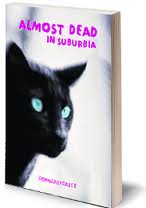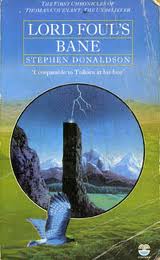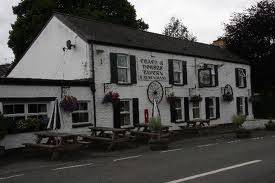For Lyz. Who has lotsanlots…anlots of patience. 🙂
I’ve hardly posted anything from this book. Odd I suppose, but then there is a teaser posted on the publisher’s website.
http://www.pkaboo.net/almostdead.html
I don’t know about other writers, but for me once a book is done and dusted – read published – there isn’t anything one can do with it. It is pretty much a done deal unless the publisher suggests a rewrite or something for a new imprint.
Anyway, the point is the ‘book is closed’ and we move on to the next story.
But I was sorting out some books on one of my shelves in the office and my hand fell upon a copy Almost Dead so, not having read it in a while I thought I’d grab a coffee and a comfy chair and see if it still made sense and maybe even forced a smile from the writer, yours truly.
It did. This scene was always one of my favorites. I love the character, Albert. He was such fun to write. The perfect foil to Straight-as-an-Arrow Detective Sergeant Bill Williams.
I hope it makes you smile as well.
___________________________________________________________________
Bill parked the Jeep in its allotted space behind the police station and walked back up the short tarred driveway to the station entrance.
An elderly gentleman, dressed in an old RAF greatcoat, was sitting on the front steps holding a placard and looking sorry for himself.
‘Morning, Albert, what’s all this then?’ Bill asked.
Albert Gilling was Wiggleswood’s only homeless person. The old man was not really homeless; he just claimed he was. A victim of circumstance was the term he used. In fact, Albert was the wealthiest person in Wiggleswood. But somewhere along the line it seemed as if a few carriages had become derailed, and this was when he had begun a life of sort-of living on the streets.
Albert’s family owned large tracts of farmland, and had numerous other business interests at home and abroad. They also bred racehorses, ran a world-renowned stud-farm and were the ones responsible for resurrecting the Corlington-to-London train line, including rebuilding the station and the steam locomotive that ran on its narrow gauge track, all of which was now part of the National Trust.
Albert’s problems began several years ago after his family claimed he had had a nervous breakdown.
Albert insisted there was nothing wrong with his mind. He said that the ability to see ghosts was perfectly normal. It was every one else that was crazy.
Albert went for treatment in London but managed to avoid being committed by behaving ‘normally’ for six months. Bill suspected he had behaved himself just enough to avoid staying out of a mental institution. He felt sure there was more to Albert Gilling than met the eye. So did Albert.
Eventually, he evicted himself from the large family home, claiming the ghost of Lord Alfred Tennyson was harassing him for some inexplicable reason.
His family relooked at the possibility of having him committed. Seeing as Albert’s family were fairly well known, the villagers feared such an act would immediately attract the attention of the media. The last thing they wanted was headlines in the newspapers about the ‘Loony Landowner from Wiggleswood’.
So a small flat was organised for him at the back of the police station, and after a month Albert claimed he had stopped seeing ghosts.
As a gesture of gratitude for ‘Putting me up,’ Albert did voluntary police work.
‘I’ll keep an eye open f ‘villains. Don’t want paying.’
Bill Williams acknowledged the elderly gentleman with a salute and a cup of tea most mornings upon his arrival at the station.
When Albert wasn’t doing his police work, his part-time job was road-sweeping.
‘Cleanliness is next to wotsisname,’ Albert announced the day he decided to take on this supplementary role.
Bill had bumped into him on his first morning as he was leaving the newsagent.
Albert had just turned into the high street, pushing a yellow handcart laden with an assortment of brooms and shovels and a long-handled leaf rake.
One of the first things Bill had noticed were the letters C.T.C painted on the side of the cart. Oh, dear, he thought. Now what?
‘Hello, Albert. CTC? That’s Corlington Town Council if I’m not mistaken?’
‘It ain’t nicked, if that’s what you’re thinking,’ Albert grumpily volunteered.
‘Nicked?’
‘Yeah. Nicked: as in filched, stolen or purloined. I’ve got friends, you know?’
‘I’m sure you have, Albert. It’s nice to have friends.’ It was clearly best not to wind Albert up. ‘You mind how you go, all right?’
His family were over the embarrassment of having a semi-homeless person in their ranks and, fortunately, the problem had not attracted any attention from the newspapers.
Now, in response to Bill’s greeting, Albert retorted, ‘That’s Mister Gilling to you, Detective Sergeant, and don’t you forget it.’
Bill raised an eyebrow. He was used to Albert being cantankerous every now and then, but not downright rude.
‘I’ll be back in a minute. Don’t go away,’ Bill told him.
‘I ain’t going nowhere, Bill Williams. You can count on that. I told ‘em, I did,’ he shouted at Bill’s retreating back.
‘Morning, Sharon; kettle on? Albert’s outside. He’s having a turn again, by the looks of it.’
‘Morning, sarge,’ PC Griffith replied. ‘He’s been outside for the past half an hour marching up and down waving that stupid placard. I was seriously thinking of arresting him for his own good. Been making a heck of a row he has. His family will be down soon if he doesn’t behave himself. It’s just boiled, sarge.’
‘Good, I’ll see if I can sort him out then. Finch in?’
Bill stepped behind the front desk. The kettle sat on a small wooden table along with a variety of mugs, a teapot and associated paraphernalia considered essential to the smooth running of police-forces everywhere. Bill made a pot of tea.
‘Reckons he’s quitting, so he says,’ Griffith informed him. ‘He’s in your office.’
He was a bit taken aback by this piece of news, considering that Finch believed himself a ‘born copper’.
‘What brought this on then? Did he finally accept that Clint Eastwood wasn’t a real copper after all?’ Bill asked, jokingly.
‘Not Ben, sarge; Albert. Says road-sweeping‘s too dangerous. Didn’t you read his sign?’ PC Griffith asked.
Bill sighed. Here we go again, he thought as he walked past the desk with two mugs of tea. Time to solve the mystery of the disgruntled not-really-homeless-street-sweeper. ‘Don’t complain, Bill Williams,’ he mumbled to himself. ‘You gave up chasing pushers, pimps and other assorted nasties for this, remember?’
‘Sorry, sarge?’ Griffith asked.
‘Oh, it’s nothing, Constable,’ said Bill with a small smile.
Bill made a point of reading Albert’s sign. It was lying face up on the steps. ‘Grime don’t Pay, Whoa is the day,’ the slogan announced. Bill read it again and noticed the spelling mistake. Then he considered the family’s association with racehorses, and wondered. He also noticed that Albert was wearing a black armband. Fred’s death had touched everyone in the village. Bill sighed as he sat down next to the elderly gentleman.
‘Right, Albert. Let’s have it then, shall we?’ said Bill as he handed him his mug of tea.
‘I quit. That’s what. And don’t think you can get me t’ change my mind either. They didn’t believe me up at the house, and I told ‘em. Well it’s happening again. Before y’know it they’ll be all over the bloody place.’
‘What will, Albert?’ Bill asked patiently.
‘Ghosts, what else d’yer think I’m talking about?’
Oh, dear. Albert was going off the rails again, Bill decided.
‘You sure you don’t want to come inside? It’s warmer. We can chat there,’ Bill asked.
‘Inside? Then I wouldn’t be homeless would I? No thanks. The police station is probably full of ‘em too. I’ll take my chances out here if it’s all the same to you. But I ain’t sweeping no more, so let’s get that straight.’
‘You’re not sweeping any more. Okay, I understand. But Albert, you’re not really homeless,’ Bill reminded him.
‘Ha! You’re talking about the converted coal shed at the back of this place, right??’
The converted coal shed, as Albert put it, had been paid for and furnished by his family. It was as comfortable as anyone could wish.
‘So what’s all this about ghosts?’
‘Seen ’em. Two of ‘em. Up in Cherry Blossom Close, I did. They didn’t see me though, thank gawd.’
‘You saw two ghosts in Cherry Blossom Close?’ Bill asked cautiously.
‘Yes. I’d just done sweeping Crab Apple Lane and was walking to the Close and there they was! Bold as y’like, strolling up the road. What’s the matter with you, Bill Williams? You going deaf or turning senile or what?’ Albert asked. He was getting annoyed.
‘All right, Albert. Steady on. My hearing’s fine,’ said Bill, trying to keep things calm. ‘So who were these ghosts then? Did you know them?’
‘Right. Like I’m personal friends with spooks. I don’t think so, do you?’ Albert took a long, very noisy slurp of his tea.
Bill winced.
‘Then did you recognise them?’ Bill asked, wary of another tirade of sarcasm.
But instead of the abuse Bill expected, Albert took a quick swallow of tea, put down his mug then shuffled his bottom along the step until he was close enough to whisper in Bill’s ear.
Bill backed off a little but Albert grabbed the policeman’s lapel and pulled gently.
‘One of ‘em was dressed in a raincoat like in those old spy films. Like Humpy Bogey or whatever his name was. You know the one, right?’
Bill nodded.
‘Only it wasn’t him. It was that French fella. Coostow. The Pink thingy,’ said Albert, almost in a whisper.
It took Bill a couple of seconds; then the metaphorical light went on.
‘You mean Jacques Clouseau. The Pink Panther?’
‘Yeah, that’s the fella. Lived on a boat and did diving and all that stuff when he wasn’t being a policeman. Did you know he helped invent the aqualung? During the war it was. Well it was him. And he weren’t alone neither I’ll have you know.’
‘Oh?’ Bill ventured.
‘No he weren’t. And don’t give me that “poor-old-Albert’s-lost-his-marbles” look, Bill Williams. I know what I saw. Anyway, the other one was a cat. And a talking one at that.’
‘How do you know it was a talking cat, Albert?’ Bill regretted the stupid question the instant it was out of his mouth.
Albert glared at the policeman. ‘Just how the hell do you think I know it was a talking cat, for gawd’s sake?’
Bill didn’t flinch under the look but did have the sense to apologise.
‘Thank you, Sergeant. Well, the point is this. The fella in the mac looked like Coostow, but he sounded like that young fella who moved into number one a short while back. That computer fella.’
‘Ralph Fenwick?’ Despite himself, Bill was slowly becoming enthralled.
‘Riiiight.’ Albert drew the word out. ‘Him. And they, him and the cat that is, went up Cherry Blossom Close chatting to each other happy as you like. And you know where they went?’
Bill shook his head.
‘No, course you don’t. But I do. ‘Cos I followed ‘em, see?’ Albert paused for effect and took yet another noisy slurp of tea. He looked at Bill over the rim of the mug and smiled.
‘Ah, so now you’re interested. Bit diff’rent for some reason I see. Maybe you’re thinking that I ain’t quite so doolally after all, eh?’
‘Maybe not, Albert,’ Bill conceded, reluctantly. The hairs on the back of his neck and forearms had suddenly come to attention. ‘So are you going to tell me where your ghosts went, then?’
‘They ain’t my ghosts, Sergeant Williams. But for the record they went up to old Fred’s place, God rest his soul. Give me this coat, he did. D’yer know that?’ Albert indicated the large RAF greatcoat he was wearing.
‘Yes, Albert, I know that.’ Everyone knew that. ‘So, what did they want there?’ Bill asked.
‘Monkey business, that’s what they was up to. Monkey business and a spot of thieving,’ Albert told him. He was relishing his role as storyteller. For the first time he had a rapt audience. Albeit, of only one.
As soon as Albert mentioned the word ‘thieving’ Bill was on full alert. Up to that point he had gone from patience to curiosity to fascination. His mind was beginning to put two and two together and, although they still added up to five, things were slowly beginning to make a strange sort of sense. It was Wiglob.
Bill tried not to show too much emotion as he encouraged Albert to continue, even though his mind was beginning to race.
‘Fred’s kids were there, but they was next door. I heard a lot of crying. Anyway, that Ralph fella and his cat went inside and I crept round the back to see what they was up to. They went into Fred’s bedroom, cheeky buggers, and robbed him. Can you believe it? Robbing the dead. It ain’t right I tell you. Just ain’t right, even if you are a ghost,’ said Albert passionately.
‘What did they take, Albert?’ Bill asked carefully.
‘Couldn’t tell for sure, Sergeant. It was in a plastic bag. They lifted it out of the floor. Looked like Fred had some sort of safe by his bed. Whatever it was, they nicked it. Hidden in a tin box it was. They nicked what they was after then put the tin back in the hole in the floor.’
‘Anything else?’ Bill insisted. He was fully on board at this point, ghosts or no ghosts.
‘Actually there is.’ Albert sounded as though he wanted to get as much mileage out of the story as possible.
‘Well?’ Bill asked.
‘The kid was there. Fred’s grandson.’
‘Michael, you mean,’ Bill prompted.
‘Yes, little Michael. Smart kid that. Played chess with him once. Beat me, too.’
‘Really?’ Bill expressed surprise. Not at the fact that Michael had beaten Albert at chess; Michael had beaten most people he had played against, Bill included, but surprise at the fact that Albert and Michael had played; wondering where and when that was. He had become momentarily distracted. ‘What happened?’
‘Nicked my rook and it was all over. Didn’t even see it coming,’ said Albert.
‘Not the game of chess, Albert, the burglary, for goodness’ sake.’
‘Oooh, keep y’hair on there, Sergeant. The thieving, right. Well, Michael must have been in the house somewhere; I didn’t see. But he went into Fred’s bedroom to use the loo, and when he came out . . .’ Albert paused, ‘he looked at the cat and spoke to it. Would you believe it? I knew that kid was bright but I never reckoned he was clever enough to see ghosts. How about that then, Sergeant Williams? Now there are two of us. Wonder if he’ll become homeless like me? What do you think, eh?’
‘What did he say?’ Bill asked, refusing to be drawn along that path.
‘Nothing that I could tell.’
‘Not the cat, Albert. Michael, said Bill, annoyed.
‘Oh. Well why didn’t you say? He said “hello”, I think.’
‘So how do you know he was talking to the cat?’ Bill asked.
‘Because the moggy had its head poking out from under the bed and the lad looked down at it. I was watching through the window. Don’t you listen? Or do you think I’m making all this up? Maybe you think it was me that burgled Fred’s house. Wanna come and ransack me coal shed for evidence?’
‘No, Albert I do not. And for the record, I do believe you. God knows why, but I do.’ Bill couldn’t believe he had actually said that.
Albert was grinning. ‘Well you’re the copper. I’ll leave you to it then.’ He stood up and handed the empty mug back to Bill.
‘You’ve gone a bit pale there Sergeant! Which is quite a thing, considering,’ Albert chuckled. ‘Look like you might have seen a ghost.’
Bill just sat there for a few moments, not sure of what he should do next.
Albert looked up at the sky. It had become overcast during the past ten minutes or so and a few spots of rain had begun to fall.
‘Oh well, I’m off to the Coach and Horses for an early lunch.’
He stood, stretched, handed Bill the placard and shuffled off to the pub.
‘I might reconsider the road-sweeping. I’ll let y’know tomorrow,’ he called over his shoulder.
*
Copyright ©2011 Douglas Pearce
And because they said it…..
Enjoyed it very much:
This was a really witty and enjoyable read. Thanks, I enjoyed it very much! :0)
(Frances Kirkwood, Reader)
“A book well worth the time:”
I have recently finished reading “Almost Dead in Suburbia” by Douglas Pearce.
I really enjoyed it and can happily compare it to a book like “Good Omens” from Terry Pratchett. If you enjoy the light humour and a good, well written story that keeps you guessing, this in my opinion is a book well worth the time and money.
(Jason Bell, Reader)
“Original, funny, entertaining, and a very good read:”
Having read some of Pearce’s writings on his blog I was certainly expecting an entertaining story with a good deal of humour, and so it was. However, since, according to the blurb, the story revolves around the ubiquitous theme of one person’s spirit inhabiting another’s body, I wasn’t expecting much in the way of an original plot. I couldn’t have been more wrong.
The book is original, funny, entertaining, and a very good read. The plot takes you through several unexpected turns and “red herrings” and leaves you guessing ’til the end – and even after the end. The style reminds me of Terry Pratchett and Tom Sharpe with a dash of Douglas Adams.
As the saying goes, everyone has one good novel in them, but I suspect we can look forward to a few more from Pearce.
(“Ennui”, Reader)
“A brilliant, comic read. Storytelling at its best.”
(John Zande, Reader)
– See more at: http://www.pkaboo.net/almostdead.html#sthash.uteE1kLp.dpuf
“When are you going to get a proper job?”
(His Mum)





